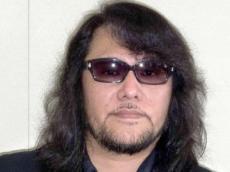|
|
TODAY.AZ / Weird / Interesting
Japanese "Bethoven" confessed his "kingdom of lie"
07 February 2014 [12:57] - TODAY.AZ
 A famous composer celebrated as a "Japanese Beethoven" for creating hit symphonies despite his deafness has been exposed as a fraud, after confessing another musician wrote his most acclaimed works.
A famous composer celebrated as a "Japanese Beethoven" for creating hit symphonies despite his deafness has been exposed as a fraud, after confessing another musician wrote his most acclaimed works.And in a surprise twist, the man who says he was the ghost-writer of the works, Takashi Niigaki, claimed in a press conference Thursday that he did not believe the acclaimed composer was deaf at all.
"I've never felt he was deaf ever since we met," said Niigaki. "We carry on normal conversations."
Niigaki told reporters in Tokyo that over the past 18 years he had been paid about 7 million yen (about $69,000) to write more than 20 pieces to order for popular classical composer Mamoru Samuragochi.
Niigaki, a teacher at the prestigious Toho Gakuen School of Music, said that at no stage did he believe Samuragochi was deaf, as the composer conversed with him normally, and provided critiques on the music he contracted him to write over the years.
"At first he acted to me also as if he had suffered hearing loss, but he stopped doing so eventually," said Niigaki.
"Later I found out that he cannot even write musical scores."
Samuragochi is hailed as an inspirational genius in Japan for having created immensely popular classical symphonies and video game scores, despite reportedly having been completely deaf for 15 years.
He claimed to rely on his perfect pitch to compose after losing his hearing, telling TIME magazine in a 2001 profile that "if you trust your inner sense of sound, you create something that is truer. It is like communicating from the heart. Losing my hearing was a gift from God."
Niigaki said he had entered into the arrangement with Samuragochi lightheartedly, but subsequently grew concerned about the deception, and told Samuragochi he wanted out.
But he said Samuragochi told him he would commit suicide if he stopped composing for him.
Niigaki said he considered himself guilty of duping the public and wanted to come clean.
"I am an accomplice of Samuragochi because I continued composing just as he demanded, although I knew he was deceiving people," he said. "I can't fool the people any more."
The office for Samuragochi's lawyers, Kazushi Orimoto and Mizuki Wakamatsu, told CNN they were unable to respond to Niigaki's claims.
But when approached by a reporter for Nippon Television, Orimoto said that the firm believed Samuragochi was indeed deaf, and had a government-issued certificate which confirmed his hearing impairment.
Earlier, they had issued a statement on behalf of Samuragochi, in which he apologized for having "betrayed fans" by having commissioned another composer to write his scores for years.
The confession is understood to have been prompted by Niigaki's impending exposure of the fraud in a tell-all interview with a Japanese news magazine.
In the statement, Samuragochi claimed he provided the broader ideas for the works, while the collaborator had produced the finished scores.
/CNN/
URL: http://www.today.az/news/interesting/130713.html
 Print version
Print version
Views: 2469
Connect with us. Get latest news and updates.
See Also
- 19 February 2025 [22:20]
Visa and Mastercard can return to Russia, but with restrictions - 05 February 2025 [19:41]
Japan plans to negotiate with Trump to increase LNG imports from United States - 23 January 2025 [23:20]
Dubai once again named cleanest city in the world - 06 December 2024 [22:20]
Are scented candles harmful to health? - 23 November 2024 [14:11]
Magnitude 4.5 earthquake hits Azerbaijan's Lachin - 20 November 2024 [23:30]
Launch vehicle with prototype of Starship made its sixth test flight - 27 October 2024 [09:00]
Fuel prices expected to rise in Sweden - 24 October 2024 [19:14]
Turkiye strikes terror targets in Iraq and Syria - 23 October 2024 [23:46]
Kazakhstan supplied almost entire volume of oil planned for 2024 to Germany in 9 months - 23 October 2024 [22:17]
Taiwan reported passage of Chinese Navy aircraft carrier near island
Most Popular
 UN report debunks Taliban claims on terrorism, highlights persistent threats from Afghan soil
UN report debunks Taliban claims on terrorism, highlights persistent threats from Afghan soil
 Pakistan’s expanding defence partnerships put Azerbaijan in strategic spotlight
Pakistan’s expanding defence partnerships put Azerbaijan in strategic spotlight
 ASCO’s “Koro?lu” tanker completes shipyard overhaul
ASCO’s “Koro?lu” tanker completes shipyard overhaul
 US Embassy commemorates anniversary of Azal plane crash
US Embassy commemorates anniversary of Azal plane crash
 Serbian President makes phone call to President Ilham Aliyev
Serbian President makes phone call to President Ilham Aliyev
 Vision and achievements of President Ilham Aliyev - strategic leader shaping modern Azerbaijan
Vision and achievements of President Ilham Aliyev - strategic leader shaping modern Azerbaijan
 China opens robotics school for humanoid training
China opens robotics school for humanoid training
